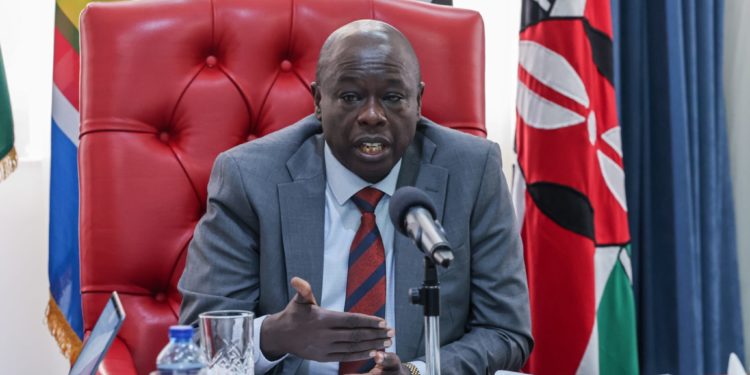Deputy President Rigathi Gachagua has alleged that the formation of a broad-based government, a move he had initially supported, is being used to orchestrate his removal from office.
Gachagua expressed concerns about internal political machinations aimed at sidelining him, despite his backing of the coalition government, led by President William Ruto.
Gachagua said the broad-based government was presented to him as a measure to stabilize the administration and foster national unity. However, he now believes it has become a vehicle to consolidate power and potentially orchestrate his ouster. “I was agreeable… I accepted 100% and supported the broad-based government,” Gachagua stated, but warned that recent developments suggest the coalition’s purpose was more about numbers than unity. “I am told they didn’t have the numbers to remove me, but now that Raila Odinga has joined, they can use his members of parliament to chase me.”
The deputy president, who was an instrumental ally in Ruto’s ascent to power, now finds himself grappling with what he describes as orchestrated efforts to undermine his position. He pinpointed individuals within the president’s inner circle as orchestrators of these efforts, but maintained that Ruto himself may not be behind the alleged plot.
The broad-based government, announced mid this year, was initially framed as an effort to bring opposition leader Raila Odinga into the fold, a move that Gachagua supported for the sake of national stability. However, he now questions the sincerity of that initiative, suggesting that it is being leveraged by political players close to Ruto to diminish his influence. “If the purpose of the broad-based government was to get numbers from ODM to join and impeach the deputy president, then that would have been a deception,” Gachagua warned.
Beyond his concerns about the broad-based government, Gachagua raised alarm over being left out of key government activities, including being removed from the presidential diary—a move he views as part of a wider effort to sideline him. “I have no access to the president’s diary. If I don’t attend presidential events, it’s because I was not informed,” Gachagua said, highlighting the operational difficulties this creates for him in carrying out his duties.
Despite these challenges, Gachagua has vowed not to resign, insisting that his mandate comes from the Kenyan people. “I was given a job by the people of Kenya, and I will serve them for the remaining three years. I am not a quitter,” he affirmed. He also rejected speculation that his performance had fallen short, citing his leadership in reforms within the coffee and tea sectors, as well as his involvement in addressing the country’s drought crisis.
The interview revealed a deputy president increasingly isolated within his own administration, yet determined to continue in his role. Gachagua acknowledged that the political dynamics had shifted significantly since the Ruto administration’s first year in office, during which he enjoyed relative autonomy and support. “For the first year, President Ruto did not allow anyone to disrespect me. But in the second year, things have changed,” he noted, referring to the public attacks against him by cabinet ministers.
As Gachagua continues to navigate a fraught political landscape, his calls for unity within the government remain consistent. “I ask my boss, President Ruto, to keep his promise to the people of Kenya, that under his watch, his deputy will not be demeaned or disrespected.”
The interview has shed new light on the internal dynamics of Kenya’s government, raising questions about the long-term stability of the Ruto-Gachagua partnership. As the deputy president faces growing political headwinds, his commitment to staying the course appears resolute, even as the forces working against him gather strength.












